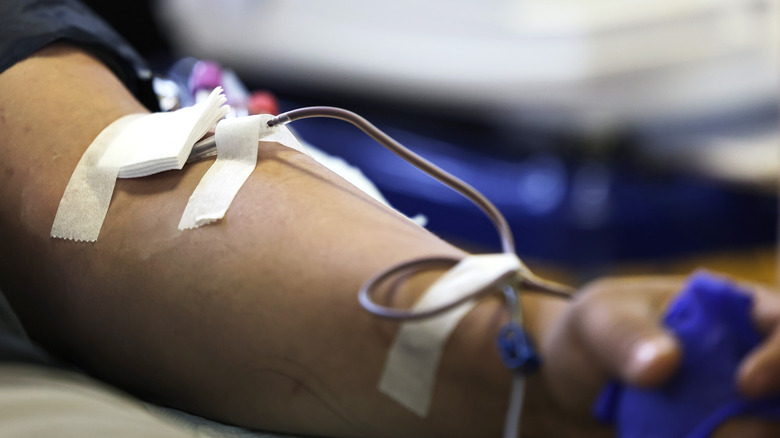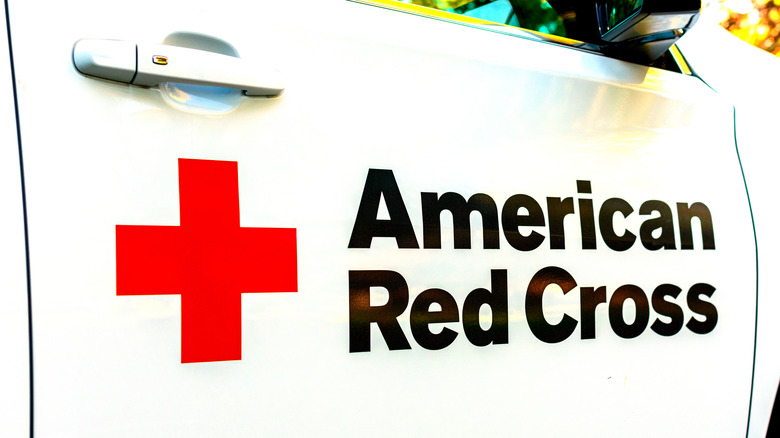The U.S. Is Facing A Severe Blood Supply Shortage. Here's Why
Blood donation is a wonderful act of service that saves millions of lives each year. In fact, just one blood donation can save up to three lives. Every minute, 30 Americans need a blood transfusion, with approximately 36,000 units of blood total being required on a daily basis (per American Red Cross).
Unfortunately, the supply does not always match the demand. This is especially the case now, as the United States is suffering from a critical blood supply shortage. While the Red Cross generally strives to have five days' worth of donated blood, the supply has declined to half a day (per LiveScience). In some places, this shortage is even more dire than it was at the beginning of the COVID-19 pandemic when blood donation centers temporarily closed (via The New York Times).
Dr. Claudia Cohn, chief medical officer of the American Association of Blood Banks, told ABC News that the current blood supply situation is the most alarming that she has witnessed in her long career. But why is this happening now?
There are several reasons behind the current blood supply shortage
Due to circumstances surrounding the pandemic, demand for blood has increased while the supply has declined. Although beneficial for stopping the spread of COVID-19, experts told The New York Times that social distancing measures have impeded blood donation. Many schools and workplaces hold blood drives, so when they closed, fewer people donated blood.
As COVID-19 vaccines became widely available and COVID-19 cases began to decline, more people have come to hospitals for treatments they postponed to avoid contracting the virus. According to the Red Cross, many of these people have "more advanced disease progression," which means they require more blood. In addition, there has been a 10% increase in blood demand from trauma centers. A doctor may need hundreds of blood products to save the life of one person with a traumatic injury.
This blood supply shortage may have serious consequences, with doctors having to reserve blood for urgent cases, leaving other patients with less than optimal care. Even blood transfusions that cancer patients need for chemotherapy may need to be postponed (per ABC News). With all of this in mind, you may be wondering what you can do to help alleviate this situation. The Red Cross and the American Association of Blood Banks both offer information and resources on how to get started on the blood donation process. All donations save lives, but type O blood is in highest demand (via American Red Cross).


